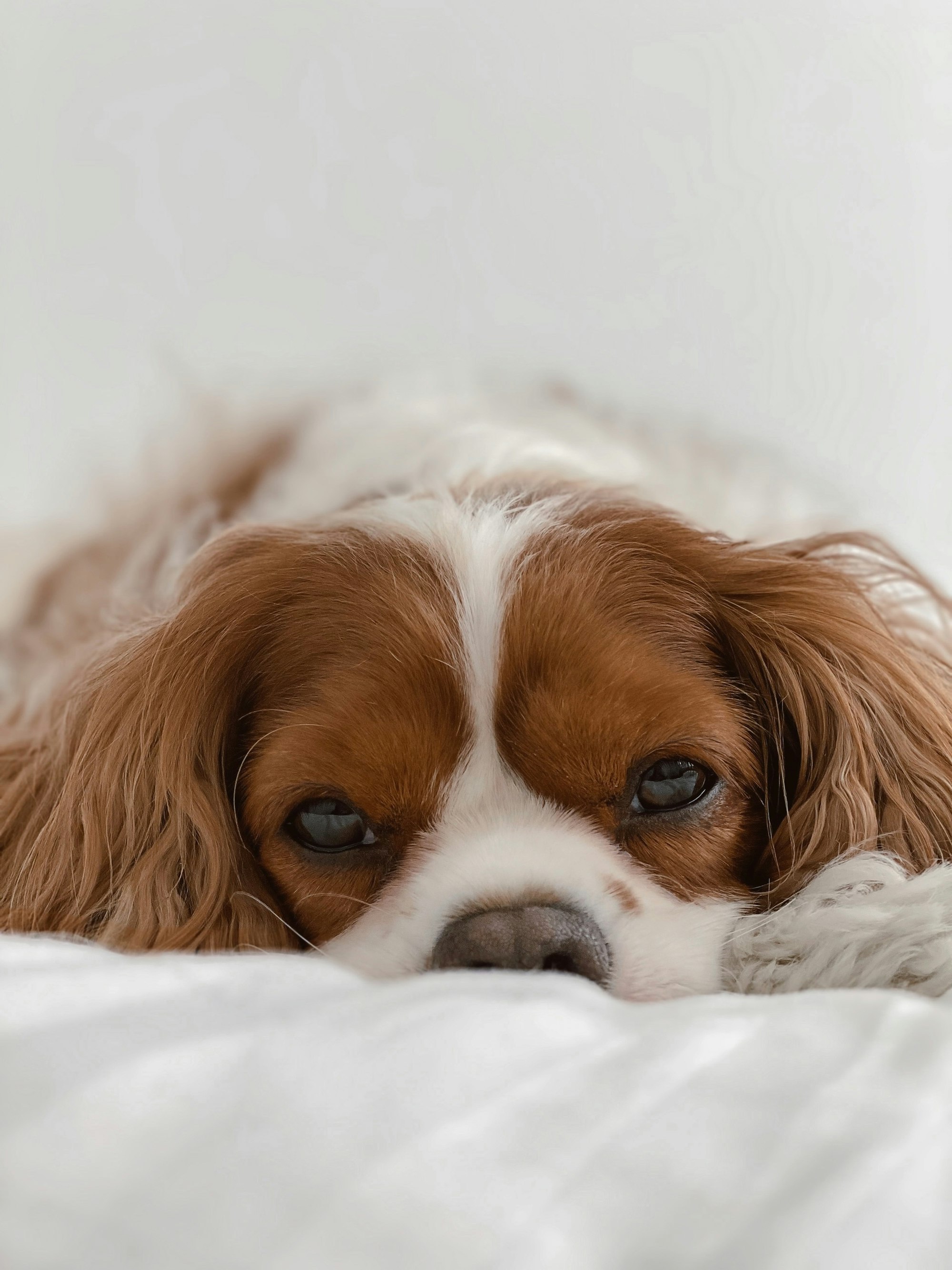Teacup King Charles: The Ultimate Guide To Owning A Miniature Companion
There's something truly magical about teacup King Charles Spaniels. These pint-sized pups are capturing the hearts of dog lovers worldwide. Imagine a dog that fits perfectly in your lap, with those big soulful eyes and an irresistible charm that'll make you melt every time they look at you. But hold up—before you dive headfirst into teacup King Charles ownership, there's a lot you need to know.
Teacup King Charles dogs aren't just small versions of their larger counterparts. They come with unique personalities, health considerations, and care needs that set them apart. In this guide, we'll break it all down for you, so you can decide if this tiny bundle of joy is the right fit for your lifestyle.
Whether you're a first-time dog owner or a seasoned pet parent, understanding what makes teacup King Charles dogs special is key. Stick around as we dive deep into everything you need to know about these adorable little companions. Let's get started!
- What Happens To Will In Stranger Things
- Fun Facts Dingo
- Is Carrie Underwood Liberal
- The Jackson 5 Film
- Galaxy Theatres Luxury
What is a Teacup King Charles?
A teacup King Charles is essentially a smaller version of the Cavalier King Charles Spaniel breed. While regular Cavaliers typically weigh between 13-18 pounds, teacup versions usually weigh less than 10 pounds. These dogs are bred specifically for their miniature size, making them perfect for apartment living or anyone who prefers a more compact furry friend.
But here's the deal—teacup dogs aren't officially recognized by major kennel clubs like the AKC. Instead, they're often the result of selective breeding, where the smallest dogs from a litter are bred together to produce even smaller offspring. This process can sometimes lead to health issues, which we'll talk about later.
Key Characteristics of Teacup King Charles
Let's break down some of the standout features that make teacup King Charles dogs so special:
- Northfield Newspaper
- In Blue Bloods What Episode Did Linda Die
- Pregnant Michelle Obama
- Rice University Established
- Where Do The Atlantic And Pacific Oceans Meet
- Size: Compact and lightweight, these dogs are easy to carry around and perfect for small spaces.
- Temperament: Known for being affectionate, friendly, and loyal, they make excellent companions.
- Appearance: With their silky coats and expressive eyes, they're undeniably cute.
- Lifespan: On average, teacup King Charles dogs live 10-12 years, though proper care can extend their life expectancy.
History of the Teacup King Charles
The Cavalier King Charles Spaniel dates back to the 16th century, where they were beloved by royalty in England. Queen Mary I and King Charles II were among the breed's biggest fans, hence the name. Over time, breeders began experimenting with smaller sizes, leading to the creation of teacup varieties.
While teacup dogs gained popularity in recent years, it's important to note that their breeding isn't without controversy. Ethical breeders prioritize health over size, but unfortunately, not everyone follows these standards. That's why it's crucial to do your research before bringing home a teacup King Charles.
Teacup King Charles vs. Regular Cavalier
So, what's the difference between a teacup King Charles and a regular Cavalier? Here's a quick rundown:
- Size: Teacup dogs are significantly smaller, often weighing less than 10 pounds.
- Health: Teacups may be more prone to certain health issues due to their tiny size.
- Lifespan: Both types have similar lifespans, but teacups might require extra care to ensure longevity.
- Personality: Both breeds share the same sweet and loving temperament.
Health Considerations for Teacup King Charles
Now, let's talk about the elephant in the room—health. While teacup King Charles dogs are adorable, they can be more susceptible to certain health issues due to their small size. Here are some common concerns:
- Hypoglycemia: Low blood sugar is a big risk for teacup dogs, so regular feeding is essential.
- Joint Problems: Their tiny frames can make them prone to joint issues like patellar luxation.
- Dental Issues: Small mouths often mean crowded teeth, increasing the risk of dental problems.
- Mitral Valve Disease: This heart condition is common in Cavaliers, including teacup varieties.
Don't let this scare you off—many teacup King Charles dogs live long, healthy lives with proper care. Regular vet check-ups and a balanced diet can go a long way in keeping them happy and healthy.
Preventing Health Issues
Here are some tips to help keep your teacup King Charles in tip-top shape:
- Regular Vet Visits: Schedule annual check-ups to catch any potential issues early.
- Quality Food: Feed them high-quality, small-breed dog food to meet their nutritional needs.
- Dental Care: Brush their teeth regularly and provide dental chews to keep those pearly whites clean.
- Exercise: Even though they're small, teacup dogs still need daily exercise to stay fit and healthy.
Caring for Your Teacup King Charles
Teacup King Charles dogs require a bit more TLC than their larger counterparts. Here's what you need to know:
Grooming: Their silky coats need regular brushing to prevent matting and keep them looking their best. Bathing once a month should suffice, but you can spot-clean as needed.
Feeding: Small dogs have high metabolisms, so they need to eat more frequently. Divide their daily food intake into several small meals to prevent hypoglycemia.
Training: Despite their size, teacup King Charles dogs are intelligent and eager to please. Positive reinforcement training works wonders for teaching them basic commands and good behavior.
Exercise Needs
Don't let their tiny size fool you—teacup King Charles dogs still need regular exercise to stay fit and healthy. A daily walk or playtime in the backyard is all it takes to keep them active and engaged.
Choosing a Reputable Breeder
When it comes to teacup King Charles dogs, choosing the right breeder is crucial. Ethical breeders prioritize the health and well-being of their dogs over profit. Here's how to spot a good one:
- Health Testing: Reputable breeders conduct genetic testing on their dogs to ensure they're breeding healthy puppies.
- Small Litters: Teacup dogs are delicate, so breeders should only breed healthy dogs with no history of health issues.
- Transparent Practices: Good breeders are open about their breeding practices and welcome questions from potential buyers.
Remember, the cheapest puppy isn't always the best choice. Investing in a healthy, well-bred teacup King Charles is worth it in the long run.
Adopting vs. Buying
Another option to consider is adoption. Many teacup King Charles dogs end up in shelters or rescue organizations through no fault of their own. Adopting a dog not only gives them a second chance at happiness but can also save you money on initial costs.
Cost of Owning a Teacup King Charles
Owning a teacup King Charles comes with certain financial responsibilities. Here's a breakdown of the costs you can expect:
- Purchase Price: Teacup puppies from reputable breeders can cost anywhere from $1,500 to $3,000.
- Veterinary Care: Annual vet visits, vaccinations, and preventive care can add up quickly.
- Food and Supplies: High-quality dog food, toys, and grooming supplies are ongoing expenses.
While teacup King Charles dogs may be more expensive upfront, the joy they bring to your life is priceless.
Long-Term Financial Considerations
Don't forget about long-term costs like potential health issues, emergency vet visits, and senior care. Budgeting for these expenses ensures you're prepared for any surprises that may come your way.
Teacup King Charles Temperament
One of the reasons teacup King Charles dogs are so popular is their amazing temperament. These little guys are:
- Affectionate: They love nothing more than cuddling up with their humans.
- Playful: Despite their small size, they have big personalities and love to play.
- Intelligent: They're quick learners and enjoy interactive games and training sessions.
Whether you're a solo owner or part of a family, teacup King Charles dogs make great companions for people of all ages.
Compatibility with Other Pets
Teacup King Charles dogs generally get along well with other pets, including cats and other dogs. However, their small size means they can be easily injured, so supervision is key when introducing them to new animal friends.
Conclusion
Teacup King Charles dogs are undeniably adorable and make fantastic companions for the right person or family. While they come with unique challenges, the love and joy they bring to your life are unmatched.
So, what's the next step? If you're seriously considering adding a teacup King Charles to your household, do your research, find a reputable breeder or rescue organization, and prepare for a lifetime of love and laughter.
Don't forget to leave a comment below sharing your thoughts on teacup King Charles dogs. And if you found this guide helpful, be sure to share it with your fellow dog lovers!
Table of Contents
Article Recommendations
- June 20 Astrological Sign
- Columbus Junction
- 1967 Halftime Show
- Rice University Established
- Jane Leeves Movies And Tv Shows



Detail Author:
- Name : Dr. Florence Schamberger
- Username : effertz.tess
- Email : cbins@fisher.com
- Birthdate : 1994-05-14
- Address : 9027 Daren Trail South Abner, NM 47036
- Phone : 1-541-754-5652
- Company : Veum-Maggio
- Job : Gas Compressor Operator
- Bio : Quo est pariatur ea voluptatem. Est qui eius maxime qui consequatur nihil qui animi. Ut sint et deserunt eos. Enim nostrum voluptatum consequatur dolorum dolor.
Socials
linkedin:
- url : https://linkedin.com/in/gunner9931
- username : gunner9931
- bio : Dolor minima sit voluptatem ab rem molestiae.
- followers : 4650
- following : 1136
instagram:
- url : https://instagram.com/bauch1984
- username : bauch1984
- bio : Qui consequatur natus et explicabo tempore laborum. Et ut hic laudantium accusantium dolores.
- followers : 6718
- following : 2781